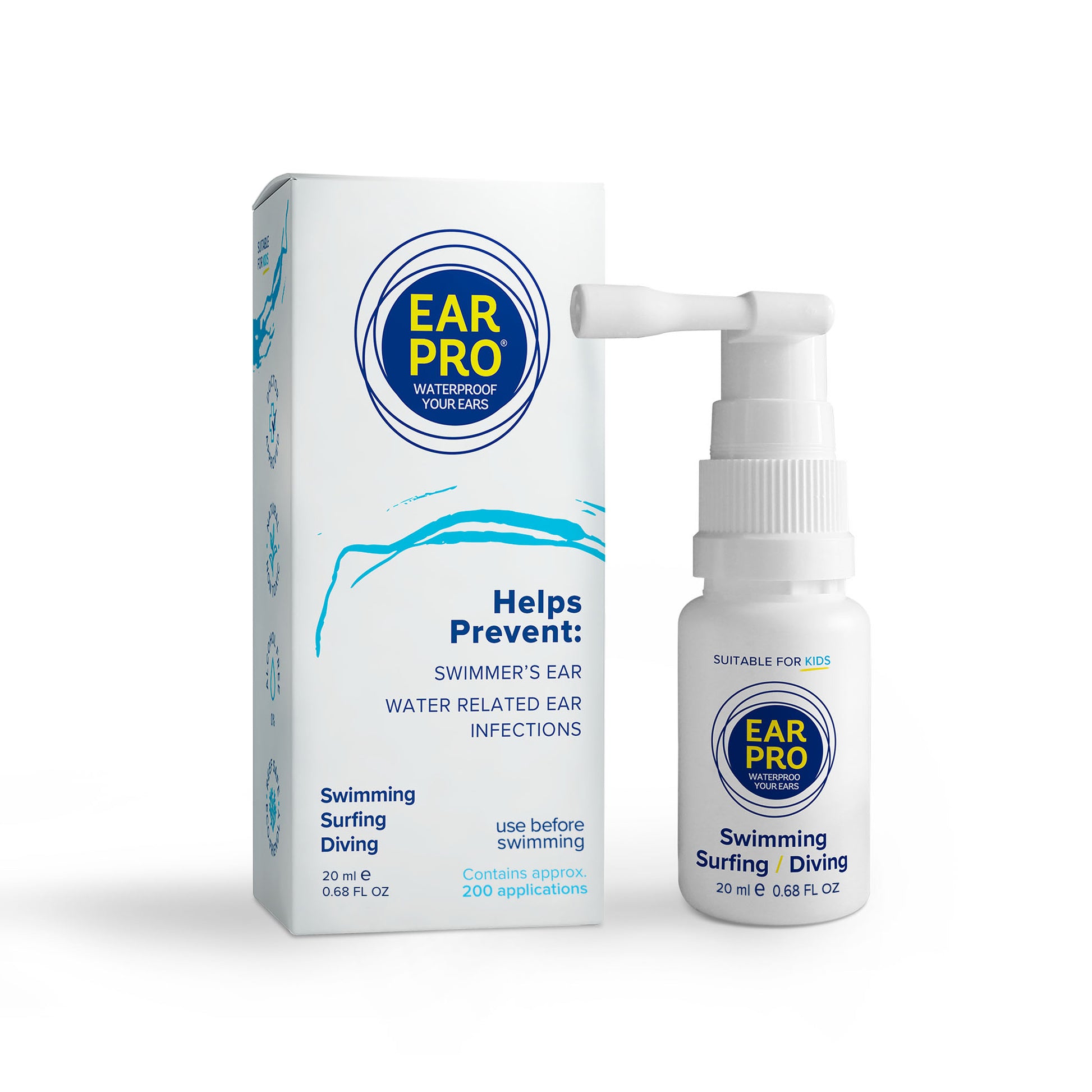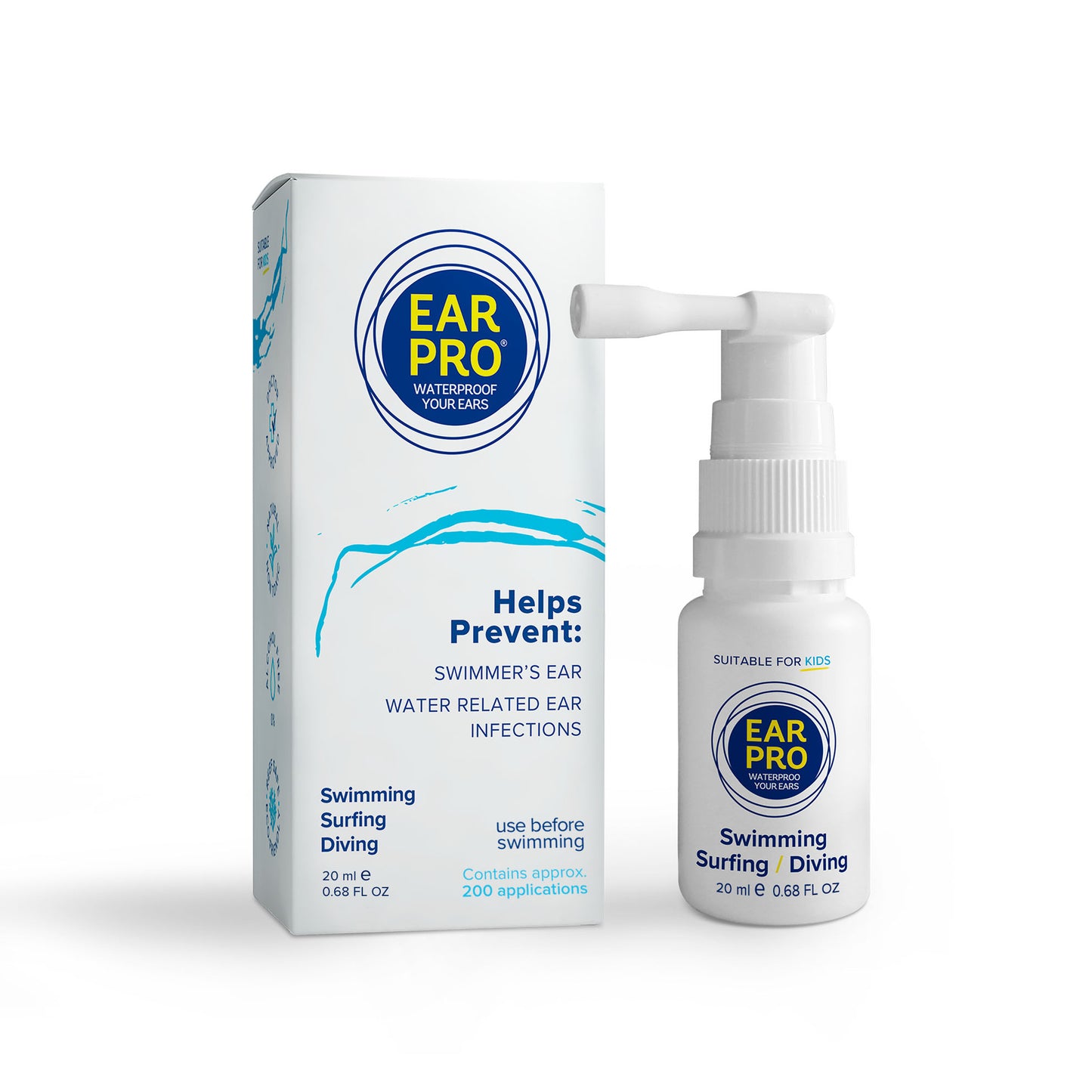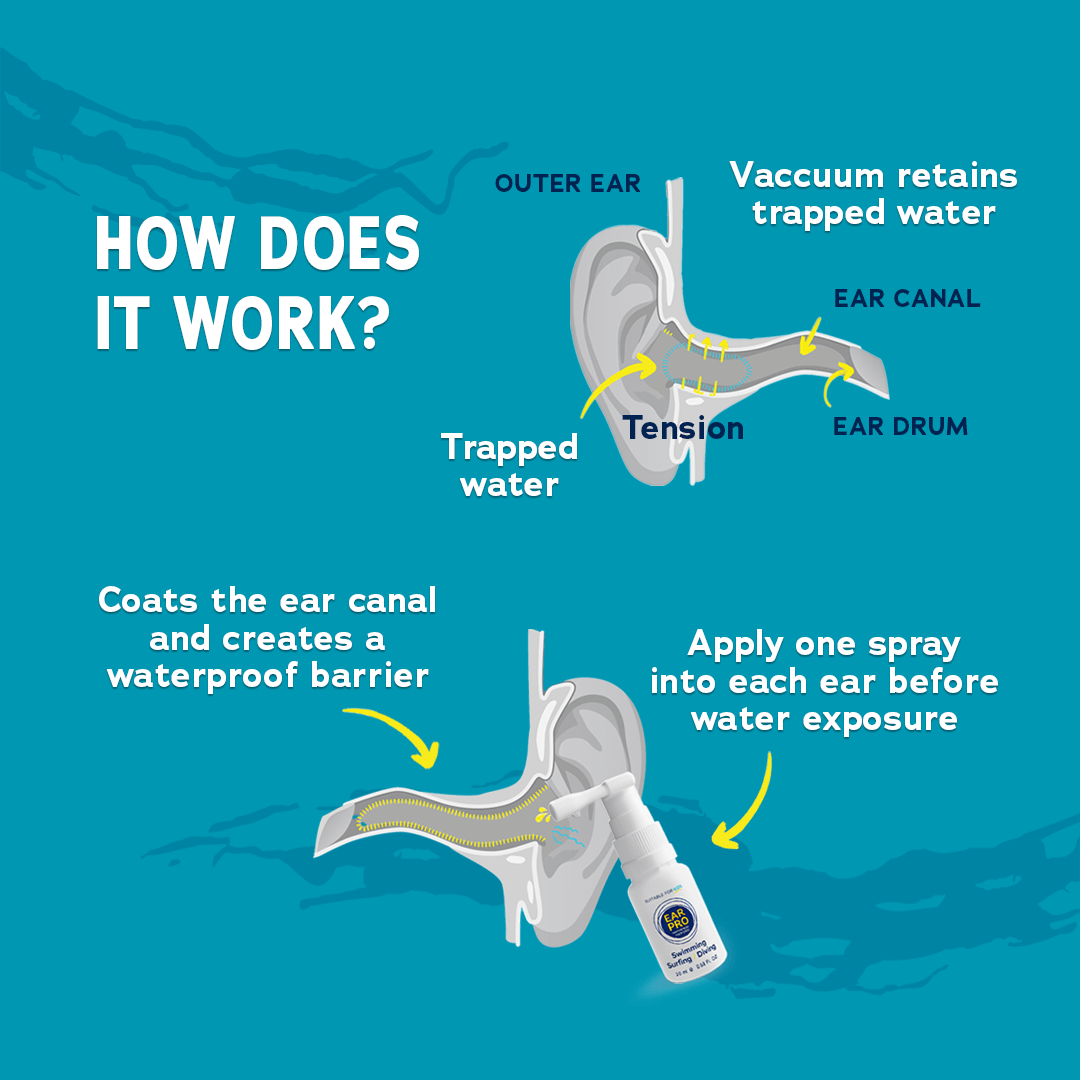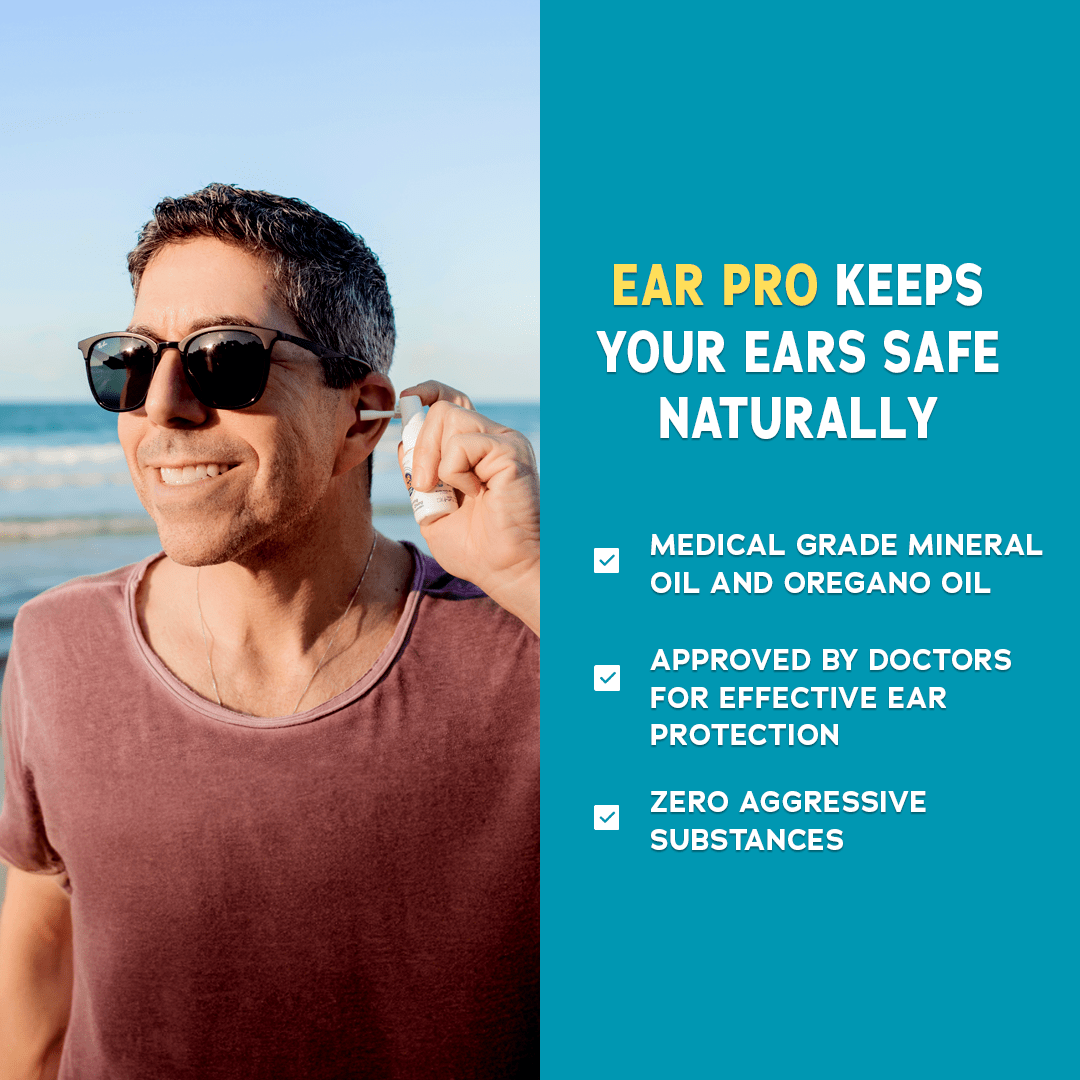Diving can be a wonderful experience when safety precautions are in place. Ear canal issues caused by water pressure or prolonged water exposure often impair the scuba diving experience. Today, a range of ear protection solutions for diving exist, with earplugs being one of the most popular. This blog specifically addresses whether earplugs are safe for scuba diving.
People participating in water sports often ignore health hazards like Swimmer’s Ear (Otitis Externa), Barotrauma, or Surfer’s Ear (Exostosis), which can cause hearing loss and chronic ear issues. Let's explore how different types of earplugs, such as vented and custom earplugs, provide ear protection during deep diving. Additionally, we'll look at viable ear protection alternatives to earplugs for your diving kit.
Understanding Ear Pressure and Equalization
Equalizing ear pressure is essential during diving to prevent discomfort and injury. As you descend, water pressure builds up, demanding your body to adapt. Balancing the pressure inside your ears with the surrounding water prevents pain and protects against ear injuries. Divers use techniques like the Valsalva maneuver to equalize the pressure in the middle ear.
Barotrauma is a serious issue that occurs when there is an inability to equalize the internal ear pressure with the external water pressure, leading to pain and potential injury. Proper ear safety underwater is paramount, and knowing how to equalize is crucial for divers.
Other Health Hazards Associated With Diving
Barotrauma isn't the only ear issue divers face; prolonged water exposure also raises the risk of various infections and skin problems. Some of these are:
A. Surfer’s Ear (Exostoses)
Despite the name, Surfer’s Ear isn't limited to surfers. It involves abnormal bone growth in the ear canal due to frequent exposure to cold water and wind. This can result in hearing loss and infections. Divers, particularly in colder waters, are also susceptible to this condition.
B. Swimmer’s Ear (Otitis Externa)
Swimmer’s Ear affects more than just swimmers. It's an infection in the outer ear canal caused by water remaining in the ear, which creates an environment for bacteria to thrive. This condition can impact anyone involved in water activities, including divers.
Proper ear care for divers is necessary to prevent these conditions. Therefore, to understand which earplugs are safe for scuba diving, it is important to balance their safety benefits against their potential drawbacks.
Types of Earplugs for Scuba Diving
Choosing the right ear protection for water activities is necessary to ensure a safe and enjoyable experience. Earplugs offer varying degrees of protection for diving and similar underwater sports, but they also come with their own set of risks. Understanding the benefits of using earplugs underwater can help determine which types of earplugs are safe for scuba diving.
1. Vented Earplugs
Vented earplugs are specifically designed to ensure safety and comfort during scuba diving. They feature a valve that allows air and water to move in and out, aiding with ear pressure equalization. They are made from hypoallergenic materials and provide a snug fit.
Pros:
- Designed specifically for diving, allowing air and water to move in and out
- Helps with ear pressure equalization, reducing the risk of barotrauma
- Made from hypoallergenic materials, providing a snug fit
Cons:
- If the valve gets blocked by earwax or debris, it can cause the same issues as non-vented earplugs, potentially leading to barotrauma
- Allows some water to enter the ear canal, which may cause infection
2. Custom Earplugs
Custom earplugs for diving and underwater activities are molded to fit the diver’s ear perfectly, offering a comfortable and secure fit. They are particularly beneficial for individuals who have issues with ear infections or equalizing pressure, making them one of the best earplugs for safe scuba diving.
Pros:
- Molded to fit the diver’s ear perfectly, offering a comfortable and secure fit
- Particularly beneficial for those with ear infections or having difficulty equalizing pressure
- Often considered the best earplugs for scuba diving due to their tailored fit
Cons:
- Can be costly compared to standard earplugs
- May require multiple fittings to achieve the perfect fit
3. Solid Earplugs
Standard earplugs are generally inexpensive and widely available. However, they are not recommended for diving as they can trap air and cause pressure imbalances, leading to potential ear damage.
Pros:
- Generally inexpensive and widely available
Cons:
- Not recommended for diving as they can trap air and cause pressure imbalances
- Can lead to potential ear damage if used while diving
- Do not assist with ear pressure equalization
Therefore, to ensure a safe diving experience, it is important to weigh the benefits against the drawbacks of these earplugs for your diving kit. Additionally, Here are some tips on preventing ear issues while diving.
Safety Tips for Using Earplugs While Diving
Ensuring diving earplugs' safety involves proper usage and maintenance. Follow these tips to protect your ears and enhance your diving experience:
- Ensure Proper Fit: Ill-fitting earplugs can cause more harm than good. Make sure they fit snugly and are designed for diving
- Regular Cleaning: Earplugs should be cleaned after each use to prevent infection
- Avoid Non-Vented Earplugs: Always use vented earplugs to allow for proper equalization
Alternatives to Earplugs for Diving Ear Protection
Earplugs are widely used for diving and other water activities. However, DAN (Divers Alert Network) does not consider earplugs safe for scuba diving as they increase the risk of barotrauma. Therefore, exploring other viable alternatives to earplugs for enhanced safety is important:
- Scuba Hoods: These scuba diving protection for ears can help with warmth and reduce water entry. They are very effective against infection or irritation caused by prolonged water exposure. However, hoods can trap some air in the ear canal, making it more difficult for divers to equalize ear pressure.
- Ear Sprays: Alcohol-free ear sprays like Ear Pro offer a modern solution. Ear Pro uses medical-grade mineral oil to create a water-repellent barrier in the ear canal, preventing barotrauma and, at the same time, reducing the risk of infections without disrupting the ear’s natural pH balance. This is why alcohol-free ear sprays offer a better alternative to earplugs and hoods for underwater safety.
While earplugs are safe for scuba diving, alternatives like scuba hoods and alcohol-free ear sprays can minimize the risks associated with earplugs.
Caring for Your Ears After Scuba Diving
Proper ear care after scuba diving is essential to prevent infections and maintain ear health. Follow these steps to ensure your ears stay healthy post-dive:
- Dry Your Ears: Gently dry your ears with a towel and tilt your head to help drain any trapped water.
- Use Ear Sprays: Alcohol-free ear sprays can help maintain ear health without drying out the skin. They prevent infections by creating a water-repellent layer.
- Check for Earwax Buildup: Regularly check and gently remove any earwax buildup to avoid blockages.
- Avoid Inserting Cotton Swabs: Using cotton swabs in wet ears can increase the risk of infections.
By taking these steps, you can consistently maintain good overall ear health. Check out our detailed guide on ear protection for water sports to ensure ear health doesn't interfere with your aquatic adventures.
Conclusion
To conclude, earplugs are safe for scuba diving but have some drawbacks. Ear Pro is the best alternative for a comprehensive solution to ear-related issues caused by prolonged water exposure and waterborne bacteria. Unlike traditional earplugs, Ear Pro creates a water-repellent barrier using medical-grade mineral oil, preventing infections and ear pressure equalization issues without disrupting the ear's natural pH balance. If you're seeking an underwater ear protection solution that guarantees safety and comfort, Ear Pro might be the right choice.
FAQ
1. Are earplugs recommended for scuba diving?
Earplugs are generally not recommended for scuba diving due to the increased risk of barotrauma. Divers Alert Network (DAN) advises against using them as they can trap air and cause pressure imbalances.
2. How do ventilated earplugs help with ear pressure while diving?
Ventilated earplugs have a valve that allows air and water to move in and out, aiding in ear pressure equalization. This design helps reduce the risk of barotrauma by preventing pressure build-up in the ear.
3. What are the risks of using solid earplugs for scuba diving?
Using solid earplugs for scuba diving can trap air in the ear canal, leading to pressure imbalances. This can increase the risk of barotrauma and potential ear damage, making them unsafe for diving.
4. How can I prevent ear issues after a dive?
To prevent ear issues after a dive:
- Dry your ears thoroughly with a towel.
- Use alcohol-free ear sprays to maintain ear health and prevent infections.
- Avoid inserting objects like cotton swabs into your ears.
- Regularly check and gently remove earwax buildup to avoid blockages.










